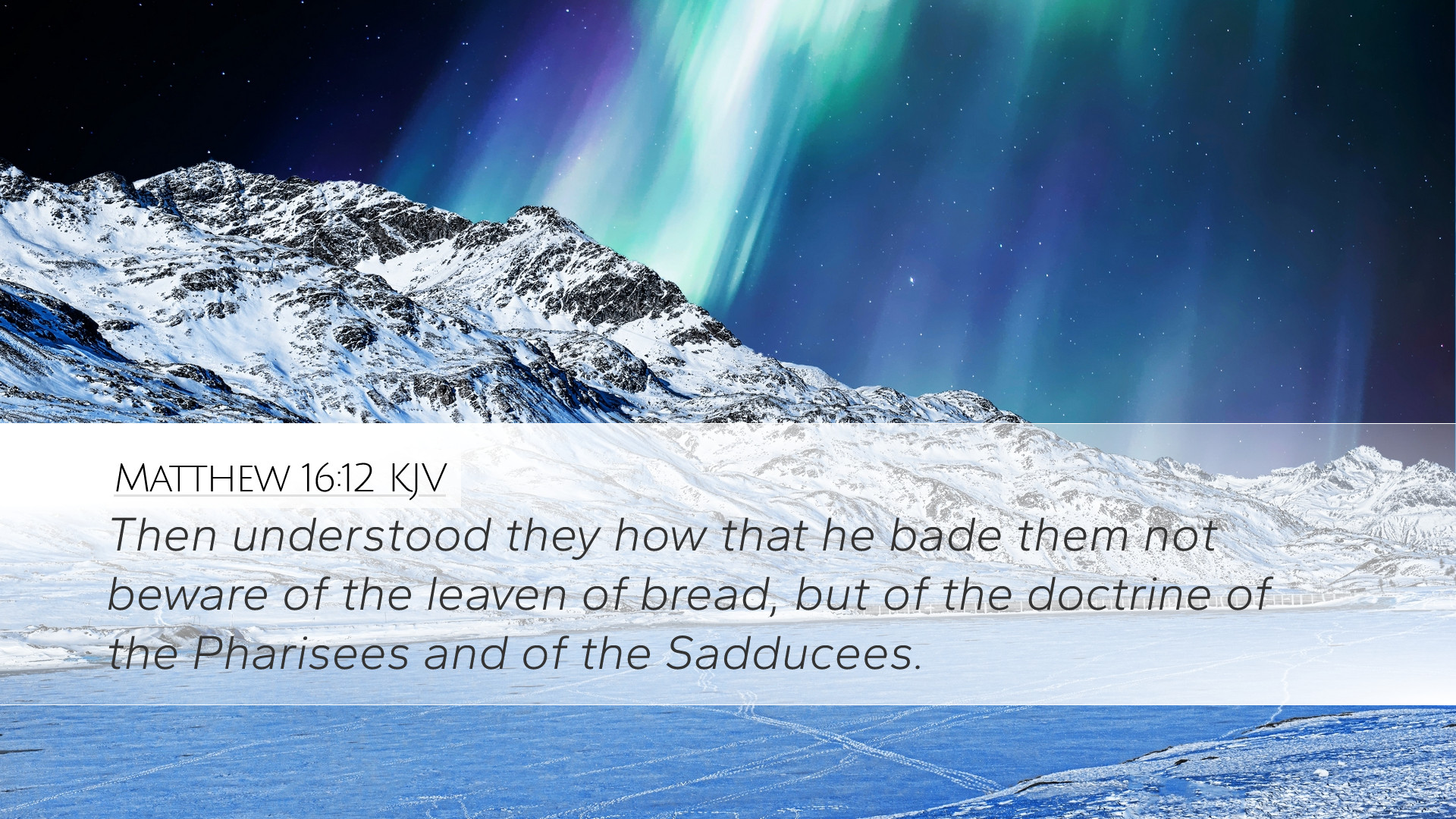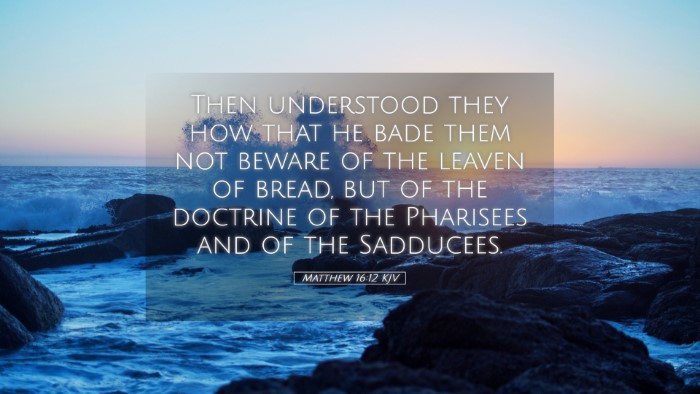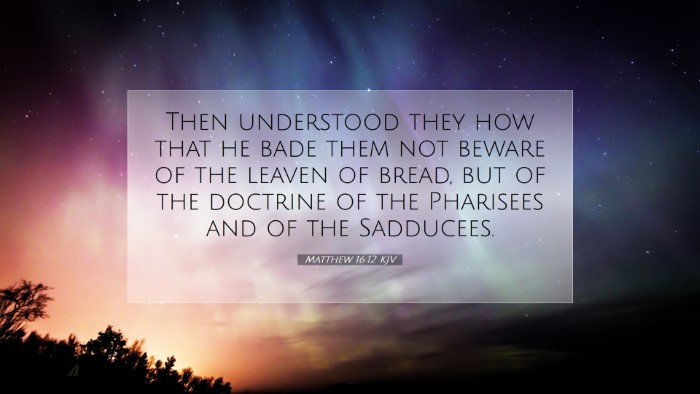Commentary on Matthew 16:12
Matthew 16:12 states, "Then understood they how that he bade them not beware of the leaven of bread, but of the doctrine of the Pharisees and of the Sadducees." This verse marks a pivotal moment in the dialogue between Jesus and His disciples, illustrating the importance of spiritual discernment and the nature of false teachings.
Context and Background
To fully grasp the significance of Matthew 16:12, one must consider its context within the Gospel. This passage follows a discussion where Jesus warns His disciples against the "leaven" of the Pharisees and Sadducees. In scripture, leaven often symbolizes influence, particularly of a corrupt or sinful nature. The disciples initially misunderstand Jesus' warning, thinking He refers to actual bread rather than to the teachings of these influential religious groups.
Insights from Public Domain Commentaries
Matthew Henry
Matthew Henry emphasizes the disciples' gradual understanding of Jesus' teachings. He notes that their initial confusion reflects a common human tendency to focus on the material rather than the spiritual. Henry points out that just as leaven permeates dough, so too do the teachings of the Pharisees and Sadducees permeate the faith and practices of God's people. He warns against the dangers of accepting erroneous doctrines that can lead believers astray.
Albert Barnes
Albert Barnes, on the other hand, elaborates on the implications of Jesus' teaching regarding doctrine. He argues that the 'leaven' signifies the corrupt teachings and traditions that the Pharisees and Sadducees introduced into the faith. Barnes interprets Christ's warning as a call to vigilance over doctrinal purity. He asserts that the followers of Christ must be discerning and careful about the influences they allow into their lives and their worship practices. Moreover, Barnes highlights the importance of distinguishing between spiritual and temporal matters, urging believers to focus on the essence of sound doctrine.
Adam Clarke
Adam Clarke provides a thorough examination of the cultural and historical context behind this admonition. He explains that the Pharisees were known for their strict adherence to the Law but often neglected the spirit of the Law. In contrast, the Sadducees denied the resurrection and the existence of spiritual beings, focusing solely on the written text of the Law without the accompanying spiritual truths. Clarke stresses that Jesus was warning His followers to be aware of the insidious nature of such teachings that could lead people away from the true understanding of God’s word.
Theological Implications
This passage carries profound theological implications for contemporary believers. The metaphor of leaven serves as a reminder that even seemingly minor errors in doctrine can lead to significant deviations in faith practice. The teaching of the Pharisees and Sadducees represents not just historical figures but archetypes of false teachings that exist within the church today. Thus, Matthew 16:12 serves as a critical reminder for leaders and congregants alike to maintain doctrinal fidelity.
The Role of Discernment
In today’s world, the Church faces numerous challenges regarding doctrines and beliefs. The complexity of modern theological debates necessitates a strong sense of discernment among Christians. The warning about leaven encourages believers to critically evaluate teachings and leaders, ensuring they align with the truths revealed in Scripture.
Practical Applications for Pastors and Leaders
- Encourage Biblical Literacy: Pastors should foster an environment where congregants are encouraged to study the Bible, thereby equipping them with the knowledge to discern truth from error.
- Teach Sound Doctrine: Church leaders must prioritize sound teaching that aligns with the core tenets of Christian faith, avoiding the inclusion of traditions that may dilute or distort the Gospel.
- Address Cultural Influences: Recognizing the cultural zeitgeist's impact on the church, leaders should proactively address contemporary beliefs aligned against sound doctrine, guiding their congregations through these challenges.
Conclusion
Matthew 16:12 encapsulates a fundamental teaching of Jesus regarding the importance of being vigilant against false doctrines. Insights from notable commentaries shed light on the timeless relevance of this warning, reminding believers of their responsibility to uphold sound doctrine. As the church continues to navigate complex theological landscapes, the principles drawn from this verse will remain indispensable for nurturing a community anchored in the truth.


